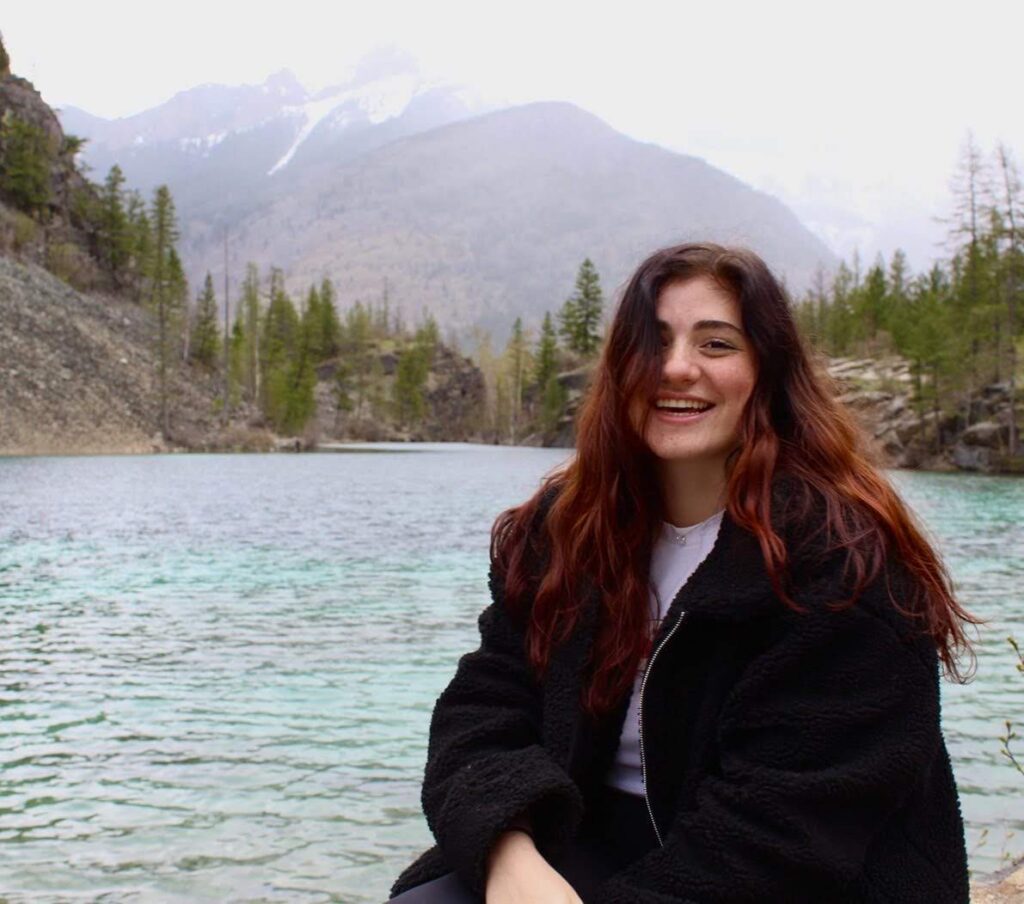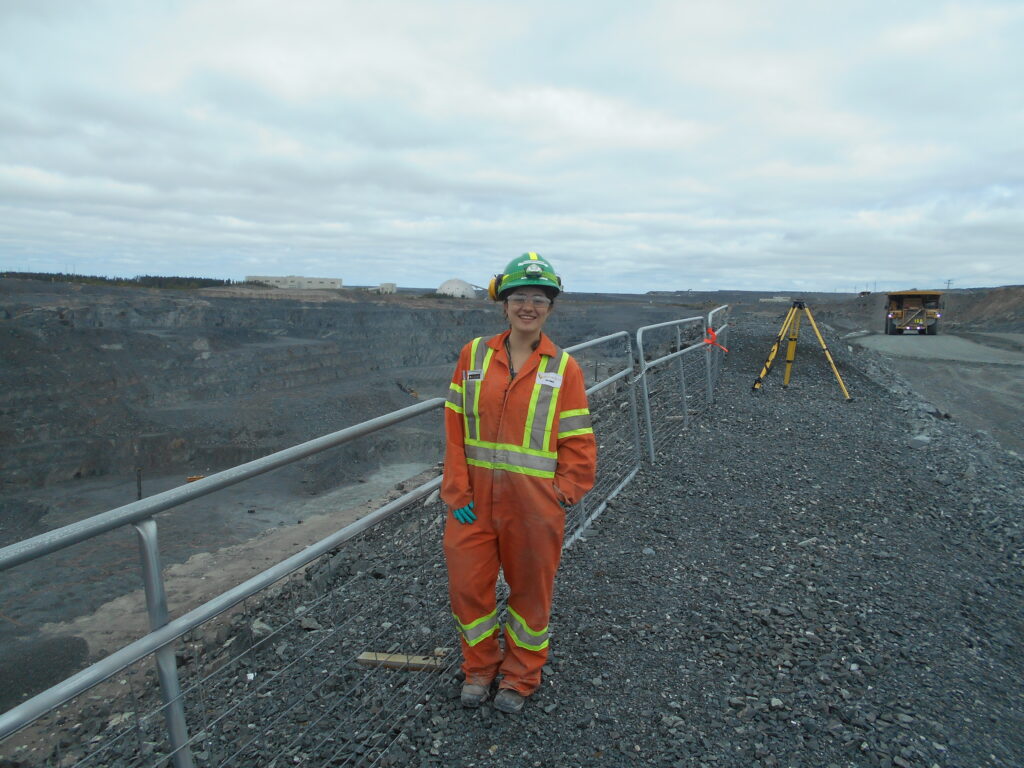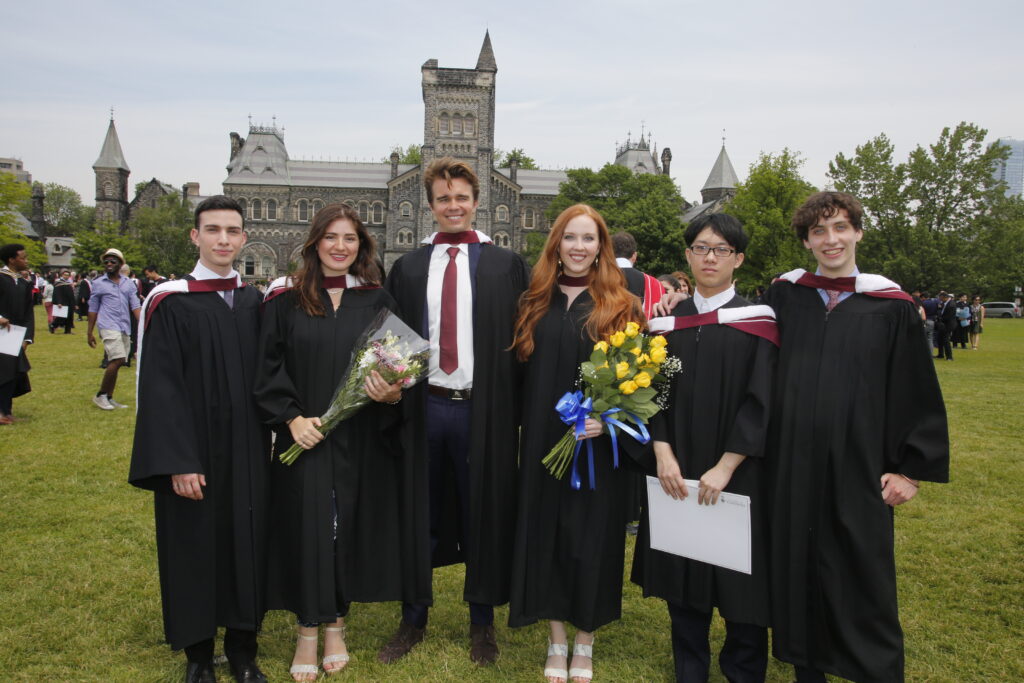Using your networking skills can yield dividends at school and beyond

Can you please tell us a little bit about yourself as an introduction.
My name’s Olivia Mogielnicki. I’m from Oakville, Ontario, so in the GTA region. I went to U of T for Lassonde Mineral Engineering, did a PEY Co-op and graduated in 2019.
After graduating, I moved out to the West Coast, worked for Teck Resources for two years, then I did a bit of a career switch. Now [since Feb 2022] I have been working at Flexport as a data analyst.
The pandemic gave me some time to think and reprioritize. I realized I was really interested in the data and technology space, so I did quite a bit of networking to learn more about the industry and build relationships. I took advantage of LinkedIn and lined up as many interesting zoom conversations as I could. I actually connected to my current opportunity through another alumna from U of T.
Why did you choose Lassonde Mineral Engineering? And did your U of T Engineering degree give you the skills that you needed to succeed professionally?
Mineral Engineering aligned with what I wanted to do – travel all over and have the flexibility to work just about anywhere I wanted to. Plus, U of T Engineering is the top engineering program in Canada.
I had a lot of positive experiences in my time in mining. I got to work in the oil sands, in Manitoba, Northern Ontario and in British Columbia. I was able to travel and work all over Canada.
As for the education, yes, it definitely prepared me professionally for where I am now. Many of the core courses like linear algebra, calculus, probability and statistics are all very relevant to a data analytics role. There is also continuous self-education and skill building required in analytics, whether its applying new concepts in SQL and Python, or learning how to model data and break down analytical projects. People often say that an engineering degree teaches you how to learn, and it’s true. I think being able to take initiative and approach technical challenges are core skills that get refined throughout an engineering degree, and these apply to my work today.

You mentioned using your LinkedIn, networking abilities and your contacts to help find your new position. Would you say this is a good approach others can use too when looking for a new role?
Absolutely, it’s a great way to put yourself out there and make connections, especially if you are pivoting careers. Digital networking is wonderful because you can widen your search radius, and meet people living and working in opportunities that may seem out of reach. It’s inspiring to explore what’s possible and meet ambitious people along the way.
I really recommend going into it with a relationship-building focus, rather than a transactional ‘I’m trying to get a job” approach. Both you and the person you are meeting with will get more out of it. When I asked people who get tons of requests why they agreed to meet with me, they would tell me that showing genuine interest and an effort to research their team, product or company in the initial message is what makes you stand out. Its really important to personalize your message and think about how you can provide value to the person you want to speak with!
You mentioned U of T connections during your search. Can you elaborate?
My schoolmate – an alumna a year above me connected me to Flexport, where she also works in the Data Analytics org – and was kind enough to connect me to the hiring manager after she and I chatted and realized it was a good fit. Beyond that very valuable intro, she took the time to give me more general advice on the kinds of online courses, projects and technical skills I would need to invest in to be competitive in the tech/data analytics space.
People always say how you never know when your network is going to come into play and bring you a new opportunity – this was that exact situation. She did industrial engineering while I did mining engineering back in university, so I never could have imagined how this relationship would open doors down the road. Having, and maintaining, those connections are so important.
Now, with your hindsight, if you could go back to your younger self, or somebody else now starting first year, what advice you would give them?
I think just believing in yourself, that you can succeed if you set your mind to a goal, even when things are difficult. Having that grit is half the battle and you can really do anything, especially with an engineering degree as your base. First year is tough, but if you are a self-starter and can build relationships with your classmates, you will make it.
I also think it’s important for students to take an intentional step back from the stress and pressure of their course load, and explore what will make them happy when they enter the working world. What hours do you want to work? Where you want to live? What kind of projects do you want to work on? With who? What excites you? Exploring that might look like setting up your own coffee chats with interesting people in your industry (or in another), seeking out internships or simply reflecting on your values and goals. Understanding where you want to go and why will help you make decisions that put yourself first!
While at school, did you have any go-to, or secret, spot on campus? Would you share that with us?
Secret spot. Hmm. I have to think. The Second Cup, across the street from the Min building on College. That’s the spot that me and my friends would probably study at the most. Cookies. Coffee. And we always liked the coffee there better than Starbucks.
In my first year we all spent a lot of time studying in Robarts because, obviously, it’s open 24 hours. But, at some point we started looking for a little bit smaller, prettier libraries like Gerstein.
I also spent an obscene amount of time in the Min Lab – its a great study space. In fourth year when working collaboratively on Capstone that was the main spot.
Do you have a talent or skill, or a hobby, that’s unusual? Maybe something we wouldn’t otherwise know, except for asking here today?
When I was a kid, I danced competitively untill I was 15 or 16. I did jazz tap, ballet point, hip hop, the whole shebang.
So, then you’ve got some moves?
Ohh yes, I’ve got some moves.
By Phill Snel
